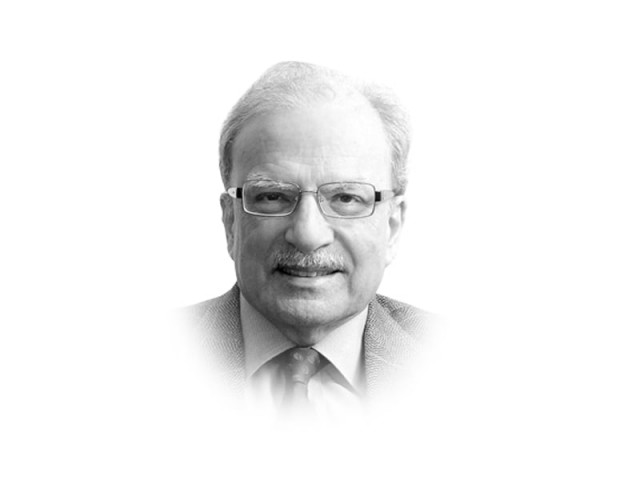Pakistan’s place in Obama’s world
In what came to be described as the “Obama Doctrine,” the president was inclined to let the world go its own way

The writer is a former caretaker finance minister and served as vice-president at the World Bank
President Obama’s pivot to Asia was meant to serve a number of objectives. Some of these were articulated by the president during his many visits to Asia. Some were developed as the circumstances in which Washington was shaping and reshaping its world view changed in unexpected ways. President Obama’s view of the world was a composite of how he and his policy associates saw the world; in particular, the way they viewed the three regions that were considered to be important for the United States: Europe, the Middle East and Asia. Obama believed that with the collapse of the Soviet Union in 1991, the United States’ task in Europe was done.
In what came to be described as the “Obama Doctrine,” the American president was inclined to let the world go its own way. The president, for instance, was reluctant to get involved in the Middle East’s many problems. His hands-off approach went to the extent of not acting when Syria’s President Basharal Assad used chemical weapons on his people. By doing so, the Syrian leader crossed what Obama had described as a “red line.” The region must confront a number of issues: whether the nations in Middle East should force the political elite to give up authoritarian rule in favour of liberal democracy, whether the arbitrary boundaries drawn by the British and the French in 1916 after the defeat of the Ottomans should be aggressively defended, and whether the resurgent and extremist Islam could be defeated by a combination of force and social and political development. These are some of the questions to which the countries themselves will have to find the right answers. The United States would get engaged in any of these efforts if its strategic interests were under threat.
But the assumptions on which the doctrine was based were challenged by a number of developments that were largely unexpected. During his third term in office as Russia’s president, Vladimir Putin sought to restore some of the past glory of the czarist empire. He used military force to reoccupy the Crimean Peninsula and fomented rebellion in the eastern part of Ukraine. Then, there was the sudden rise of the Islamic State in Iraq and Syria, which acquired large swathes of territory in the two countries as the military, trained and armed by the United States at great expense, melted away. Finally, the pressure on Europe exerted by more than a million refugees who left their homes in search of security brought about unexpected political change. Some European nations drifted to the right to counter the situation created by the arrival of a vast number of Muslims from the Middle East, Central Asia and North Africa. For Washington, these developments meant that it could not disengage itself from Europe and the Middle East as quickly as it had once hoped. It was only by reducing its presence in these two regions that Washington could focus – or on Obama’s pivot – on Asia.
In defining the scope and content of its Asia pivot, Obama had originally focused on the economic opportunities that existed in the continent that would benefit his country. Until the time he arrived in the White House, China was the most important economic partner of the United States. Trade between the two countries had increased at a spectacular rate while the Chinese placed a significant part of their accumulated foreign reserves in the United States’ treasuries. At one point, these resources were estimated to be more than four trillion dollars. This mutual dependence made the burgeoning China-US conflict different from the one Washington waged with the Soviet Union during the Cold War. However, as was the case then, the United States was not willing to share the world stage with a rising economic and military power. Washington developed an approach to Beijing that was not described as “China’s containment,” but that was the way the Asia policy was shaping up as President Obama neared the end of his two terms in office.
Pakistan does not occupy a space of any significance in this view of the world or of Asia. As revealed in a long article by Jeffrey Goldberg written for the magazine The Atlantic, Obama was dismissive of Pakistan, showing little respect for the country that was once a close ally of the United States. It was this attitude that prompted the American president to allow his drones to fly deep into the Pakistani territory and kill Mullah Mansour.
Published in The Express Tribune, May 30th, 2016.
Like Opinion & Editorial on Facebook, follow @ETOpEd on Twitter to receive all updates on all our daily pieces.















COMMENTS
Comments are moderated and generally will be posted if they are on-topic and not abusive.
For more information, please see our Comments FAQ